
Count is a historical title of nobility in certain European countries, varying in relative status, generally of middling rank in the hierarchy of nobility. The etymologically related English term "county" denoted the land owned by a count. Equivalents of the rank of count exist or have existed in the nobility structures of some non-European countries, such as hakushaku during the Japanese Imperial era.
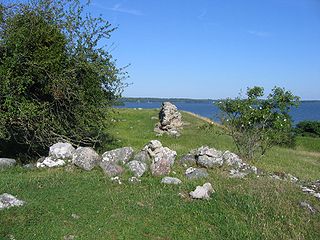
The Swedish nobility has historically been a legally and/or socially privileged class in Sweden, and part of the so-called frälse. The archaic term for nobility, frälse, also included the clergy, a classification defined by tax exemptions and representation in the diet. Today the nobility does not maintain its former privileges although family names, titles and coats of arms are still protected. The Swedish nobility consists of both "introduced" and "unintroduced" nobility, where the latter has not been formally "introduced" at the House of Nobility (Riddarhuset). The House of Nobility still maintains a fee for male members over the age of 18 for upkeep on pertinent buildings in Stockholm.

The House of Oldenburg is a European dynasty of Danish/North German origin and with strong links to Denmark since the 15th century. It is one of Europe's most significant royal houses, with branches that rule or have ruled in Denmark, Iceland, Greece, Norway, Russia, Sweden, Schleswig, Holstein, and Oldenburg. The current Queen of Denmark and King of Norway, the former King of Greece, the late consort of the monarch of the United Kingdom, as well as the first ten persons in the line of succession to the British throne, are all patrilineal members of the Glücksburg branch of this house.
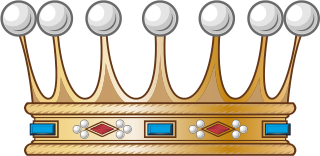
Freiherr, Freifrau and Freiin are designations used as titles of nobility in the German-speaking areas of the Holy Roman Empire, and in its various successor states, including Austria, Prussia, Bavaria, Liechtenstein, Luxembourg, etc. Traditionally it denotes the titled rank within the nobility above Ritter (knight) and Edler and below Graf and Herzog (duke). The title superseded the earlier medieval form, Edelherr.
Princess is a regal rank and the feminine equivalent of prince. Most often, the term has been used for the consort of a prince, or for the daughter of a king or prince.
Aristocracy of Norway refers to modern and medieval aristocracy in Norway. Additionally, there have been economical, political, and military élites that—relating to the main lines of Norway's history—are generally accepted as nominal predecessors of the aforementioned. Since the 16th century, modern aristocracy is known as nobility.
Riksrådet, Rigsrådet or is the name of the councils of the Scandinavian countries that ruled the countries together with the kings from late Middle Ages to the 17th century. Norway had a Council of the Realm (Riksrådet) that was de facto abolished by the Danish-Norwegian king in 1536/1537. In Sweden the parallel Council gradually came under the influence of the king during the 17th century.
The German nobility and royalty were status groups of the medieval society in Central Europe, which enjoyed certain privileges relative to other people under the laws and customs in the German-speaking area, until the beginning of the 20th century. Historically, German entities that recognized or conferred nobility included the Holy Roman Empire (962–1806), the German Confederation (1814–1866) and the German Empire (1871–1918). Chancellor Otto von Bismarck in the German Empire had a policy of expanding his political base by ennobling rich businessmen who had no noble ancestors. The nobility flourished during the dramatic industrialization and urbanization of Germany after 1850. Landowners modernized their estates, and oriented their business to an international market. Many younger sons were positioned in the rapidly growing national and regional bureaucracies, as well is in the military. They acquired not only the technical skills but the necessary education in high prestige German universities that facilitated their success. Many became political leaders of new reform organizations such as agrarian leagues, and pressure groups. Catholic nobility played a major role in the new Centre party, while Protestant nobles were especially active in the Conservative party.

Christoph Beetz was ennobled by Emperor Charles VI in Vienna, Austria on 27 January 1734 as "Beez von Beezen" after receiving an heritable membership of the old class of the Holy Roman Empire. His military career is highlighted by his command of a regiment at the age of 20 and his final appointment as Swedish Platz-Major and Stabs-Major of the military garrison in Stralsund. He was ranked with the same duties as a Stadt-General. His 1746 portrait still graces the interior of Saint Mary's Church, Stralsund, Germany where he is buried.
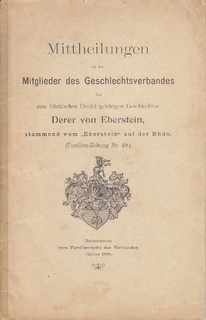
Uradel is a genealogical term introduced in late 18th-century Germany to distinguish those families whose noble rank can be traced to the 14th century or earlier. The word stands opposed to Briefadel, a term used for titles of nobility created in the early modern period or modern history by letters patent. Since the earliest known such letters were issued in the 14th century, those knightly families in northern European nobility whose noble rank predates these are designated uradel.
Hereditary titles, in a general sense, are titles of nobility, positions or styles that are hereditary and thus tend or are bound to remain in particular families.

Danish nobility is a social class and a former estate in the Kingdom of Denmark. The nobility has official recognition in Denmark, a monarchy. Its legal privileges were abolished with the constitution of 1849. Some of the families still own and reside in castles or country houses. A minority of nobles still belong to the elite, and they are as such present at royal events where they hold court posts, are guests, or are objects of media coverage, for example Kanal 4's TV-hostess Caroline Fleming née Baroness Iuel-Brockdorff. Some of them own and manage companies or have leading positions within business, banking, diplomacy and NGOs.

Løvenskiold is a Dano-Norwegian noble family of German origin. Members of the family now live primarily in Norway. Originally named Leopoldus, it was one of the first patrician Norwegian families to buy noble status, in 1739, when it was also granted the surname Løvenskiold.
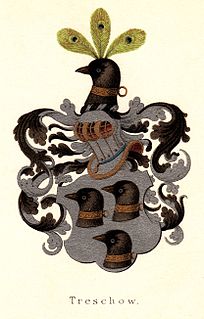
Treschow is a family originating in Denmark and with branches in Norway and Sweden. The family name means "wooden shoe-maker" and the family later counted many merchants in the 17th century and priests in the 18th century. A member of the family, Michael Treschow, bought the status of untitled (lower) nobility in Denmark in 1812, although Norway, where he was resident, abolished the concept of nobility only a few years later. Members of this family have been industrialists and landowners, notably in Vestfold.

Adel is a given name of ancient European origins that evolved from words meaning "noble", "nobility" or "elite".
In Sweden, a person must have a surname and one or more given names. Two given names are common. Surnames are inherited from the parents, in the order of "same as elder sibling, if any; specified by parents; or mother's last name," while given names must be chosen by the parents at birth. The calling name by which the person is normally identified in conversation, is in Scandinavian countries one of the given names, not necessarily the first. In contexts where the full name is spelled out, the calling name is often indicated by an asterisk, by capital letters, or underlines or italics. For example, Märta Birgit* Nilsson is known as Birgit Nilsson, while Björn* Kristian Ulvaeus is known as Björn Ulvaeus.

Fabritius de Tengnagel is a Danish and Norwegian noble family.

Bjelke, also spelled Bielke, was a Danish and Norwegian noble family, known since the mid-15th century and extinct in 1868.
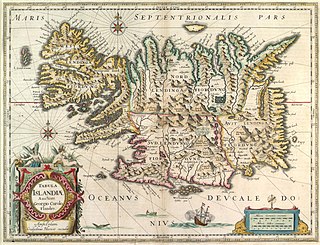
Nobility in Iceland may refer to the following:














